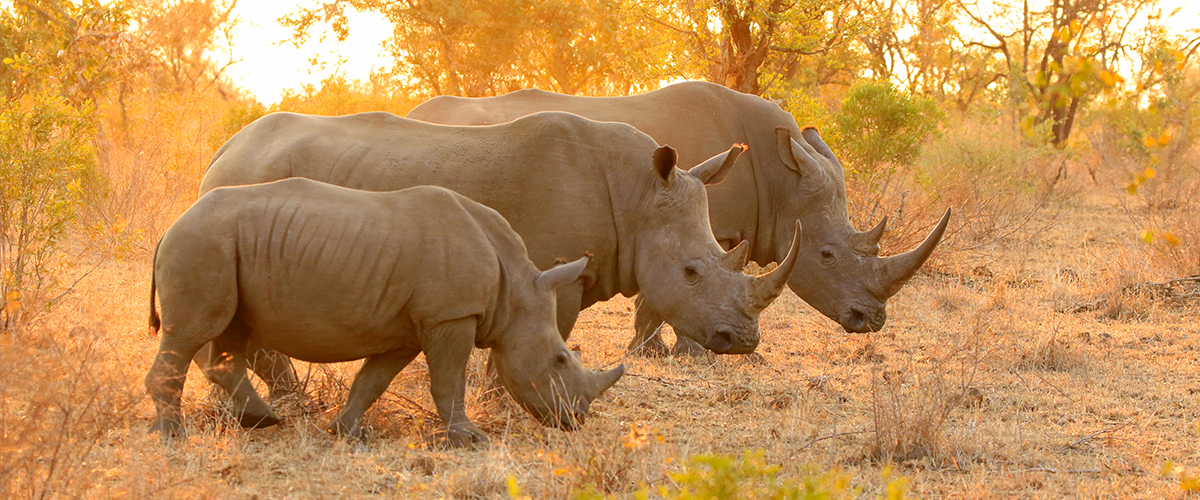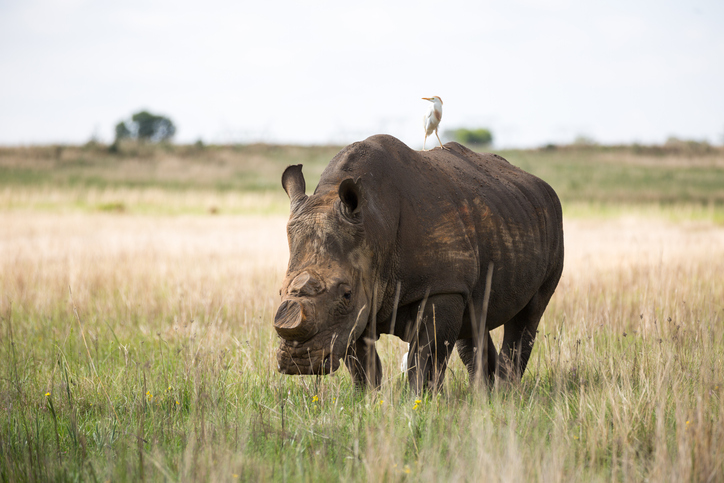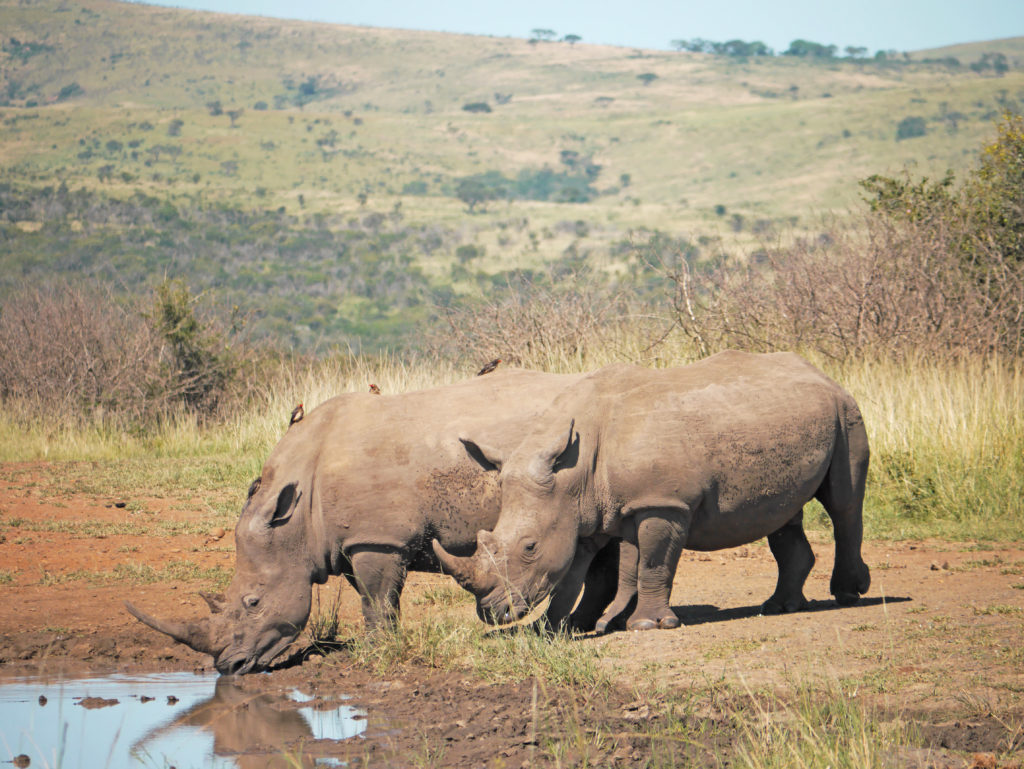Save the Rhino International
Location
Hluhluwe-iMfolozi Park in South Africa
Support Started
2005
Species
Black and White Rhinos
Mission
To uphold the security of the Park’s rhino populations by maintaining a viable perimeter fence and to increase the effectiveness of anti-poaching and monitoring activities, in order to ensure the continued and increased competence of field rangers in the Reserve.
Donations:
To provide first aid training and hydration packs for Hluhluwe-iMfolozi Park’s field rangers and anti-poaching units.
Both rhino species are now abundant at the Hluhluwe-iMfolozi Park in South Africa. The southern white rhinoceros had been reduced to a single population of 20 animals in the late 1800s, when the Park was proclaimed to protect them. By the early 1960s, rhino conservation had been so successful, that the Natal Parks Board were able to start catching and translocating these animals to other conservation areas throughout Africa. The African population now stands at some 14,500 animals, all of which had their origins in the Park. More recently, focus has shifted to the black rhinoceros and these are intensively monitored and managed in the Park.
HiP is synonymous with rhino conservation and, despite the incredible dedication of all those involved in the protection of the park’s rhinos, many rhinos have been killed on HiP since the start of the rhino poaching crisis in 2008.Hluhluwe uses patrolling and law enforcement activities to ensure the security of its rhino populations. In order for staff to perform successfully and efficiently, it is imperative that they are well equipped to perform any task that may be required. Over the years, Action for the Wild’s funds have been put towards field equipment required by the field rangers to continue to protect and monitor the rhinos of the park. As poachers are highly organised, using sophisticated communication equipment, it is imperative that anti-poaching patrols are sufficiently equipped and capable of counteracting their efforts.
More information about the work of Hluhluwe’s anti-poaching patrol can be found here.
HiP is synonymous with rhino conservation and, despite the incredible dedication of all those involved in the protection of the park’s rhinos, many rhinos have been killed on HiP since the start of the rhino poaching crisis in 2008.Hluhluwe uses patrolling and law enforcement activities to ensure the security of its rhino populations. In order for staff to perform successfully and efficiently, it is imperative that they are well equipped to perform any task that may be required. Over the years, Action for the Wild’s funds have been put towards field equipment required by the field rangers to continue to protect and monitor the rhinos of the park. As poachers are highly organised, using sophisticated communication equipment, it is imperative that anti-poaching patrols are sufficiently equipped and capable of counteracting their efforts.
More information about the work of Hluhluwe’s anti-poaching patrol can be found here.
Colchester Zoo’s charitable arm has donated £98,896.79 to save the Rhino since 2005. In 2023, we will be making an additional contribution of £7,068.04 to help protect Rhinos.
To continue to look into ways to step up rhino security due to the ever so increasing threat of poaching, and arrest those responsible. KZN’s main activities are anti-poaching and wildlife and habitat management. The threat of rhino poaching is higher now than it has been since the mid 1990s, and in recent months/years, a number of rhinos have been poached in KwaZulu Natal. The trends indicate a significant global increase in the demand for rhino horn, and rhino protection is currently given top priority in Hluhluwe-iMfolozi Park. Experience has shown that the best way to combat poaching is through direct anti-poaching work, coupled with sound neighbour relations and environmental education programmes.
Website: www.savetherhino.org
Facebook Page: www.facebook.com/savetherhinointernational



